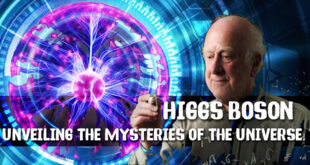A small molecule attached to carbon nanospheres could cross the blood-brain barrier Using a small molecule that activates two enzymes (CBP/p300 histone acetyltransferases), researchers from India and France have been able to completely recover long-term memory in mice with Alzheimer’s disease. Neuron-to-neuron connections that form the network were re-established leading to memory recovery in the diseased mice. The therapeutic molecule used in the study was synthesised by a team led by Tapas Kundu from the Molecular Biology and Genetics Unit at Jawaharlal Nehru Centre for Advanced Scientific Research (JNCASR), Bengaluru. The small molecule was found to activate the two enzymes, and the two enzymes by virtue of being the master regulators activate several genes that are important for memory. In a June 2013 paper in the Journal of Neuroscience, Prof. Kundu’s team had demonstrated the small molecule’s ability to generate new neurons and induce long-term memory in normal mice. Memory in mice “If it is able to induce memory in normal mice, we wondered if it can induce and recover lost memory in mice with Alzheimer’s,” recalls Prof. Kundu. “We found the molecule activating the two enzymes in the diseased mice and producing new neurons. Also, 81 genes whose expression was repressed in mice with Alzheimer’s were activated to normal levels.” Besides completely recovering lost memory, other symptoms of Alzheimer’s such as balance problem was also addressed. The amyloid plaques and neurofibrillary tangles contribute to the degradation of the neurons leading to memory loss in Alzheimer’s. “The plaques and tangles absorb these two enzymes. So once the enzymes are activated by the small molecule, the whole process of neurodegeneration gets reversed,” he says. Most clinical studies of Alzheimer’s have failed as cognitive dysfunction associated with the disease emerges quite late when the brain is affected by the deposition of plagues and tangles, and cell death. The possibility of reversing the damage through production of new neurons and connection between neurons therefore offers promise. “There is a possibility that the small molecule may at least be able to delay the cognitive decline and improve the conditions of patients,” he says. “We didn’t see the plaques and tangles progressing and growing. Don’t think they get destroyed. We need to carry out more studies to confirm the fate of plaques and tangles,” he says.
Check Also
Higgs Boson – The God Particle of Quantum Physics
Concept : About Higgs Boson The Higgs boson imparts mass to elementary particles like …
 Chinmaya IAS Academy – Current Affairs Chinmaya IAS Academy – Current Affairs
Chinmaya IAS Academy – Current Affairs Chinmaya IAS Academy – Current Affairs



